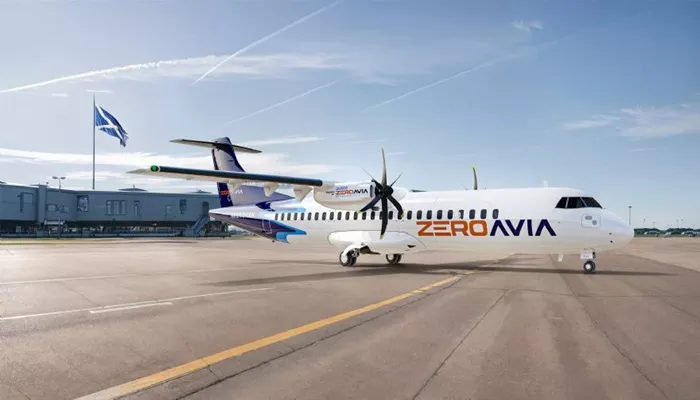Hydrogen-electric aviation company ZeroAvia has announced plans to open a major manufacturing facility in Scotland. The new site will be located at the Advanced Manufacturing Innovation District Scotland (AMIDS), near Glasgow Airport in Renfrewshire.
The facility, described as a Hydrogen Centre of Excellence, will focus on producing and testing ZeroAvia’s hydrogen-electric powertrains. It will also become the company’s main base for manufacturing advanced high-temperature PEM (HTPEM) fuel cell stacks and related systems. This move comes as the company works to meet strong demand, having secured nearly 3,000 pre-orders for full engines and components — representing over $10 billion in expected revenue.
The Scottish plant will complement ZeroAvia’s existing Propulsion Centre of Excellence in Washington State, which concentrates on electric motors and power electronics. The company also plans to expand its research and aircraft testing operations at Cotswold Airport in Gloucestershire.
The new project in Scotland is expected to bring in millions of pounds in private investment and create hundreds of jobs in the coming years. It has been supported by a £9 million Regional Selective Assistance grant from Scottish Enterprise. This follows a £20 million equity investment from the Scottish National Investment Bank during ZeroAvia’s Series C funding round. The UK’s National Wealth Fund also contributed £32 million as a key investor. Other backers in the round include Airbus, Barclays Sustainable Impact Capital, and the NEOM Investment Fund.
Advancing Fuel Cell and Powertrain Technology
In 2024, the UK Government awarded ZeroAvia and its partners £10.5 million through the Aerospace Technology Institute (ATI) programme to support the development of HTPEM fuel cells. This was done in collaboration with the Department for Business and Trade and Innovate UK. Since 2019, the UK Government has provided ZeroAvia with a total of £18.5 million in research and development funding to advance its hydrogen fuel cell and powertrain technology.
This public support, combined with more than $250 million in private investment, has helped ZeroAvia achieve major milestones. In 2020, the company flew the world’s first hydrogen-electric aircraft at commercial scale. By 2023, it more than doubled the power output and flew the world’s largest hydrogen-electric aircraft. It has also begun delivering fuel cell systems to customers and has made progress toward regulatory approval of its powertrains.
Scotland’s First Minister John Swinney and Secretary of State for Scotland Ian Murray attended a launch event at Glasgow Airport earlier this week to unveil ZeroAvia’s plans for the AMIDS manufacturing site.

